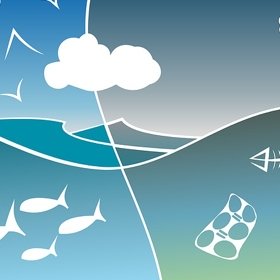
This year cosmetic and beauty industries, have been going through a global debate to eliminate the use of microbeads in skincare and personal hygiene products.
Microbeads are solid plastic particles, less than five milimeters in size, found in many beauty products including face and body exfoliators, scrubs and toothpaste. These particles act as buffing mechanisms to remove dead skin cells, dirt and grease from the surface of the skin.
However, when these particles are washed down the sink, the non-biodegradable substances cannot be filtered and end up settling into the marine sediment. Marine inhabitants ingest these particles, which then go further into the food chain, once these life forms are also eaten.
An international campaign called “Beat The Microbead” has been challenging the production of microbead- laden products since 2012 and reported that of the 663 different species negatively impacted by marine debris, approximately 11% are related to ingestion of microplastics. Around 808 tonnes go down our plugholes on a daily basis.
The industry is taking steps to replace microbeads to the natural alternative.
“Beat the Microbead” published the list of beauty brands that use these particles in their products. https://www.beatthemicrobead.org/en/
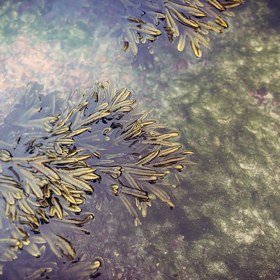
Dermalogica is one step ahead, having already swapped microbeads for more favourable alternatives in its formulas.
The Brand’s vice president of research and development, Dr Diana Howard, said: “Our formulas have been updated to include only biodegradable exfoliants and we are currently implementing a global phase-in of the new formula.”
This is Dermalogica’s statement:
Microplastics in Cosmetics (Polyethylene Beads)
“We are aware of the growing concern worldwide regarding the use of microplastic beads in rinse-off cosmetic products, and wanted to inform you of the ways in which Dermalogica is proactively addressing this concern. Of our entire line, there are only two formulas that contained microbeads — Clear Start™ Pore Control Scrub and Exfoliating Body Scrub. These products were previously formulated with Polyethylene, which has since been removed and replaced with finely micronized powders that are produced from 100% biodegradable Polylactic Acid polymers, naturally derived from renewable resources. These high-density powders provide the same high performance of Polyethylene powders, but are derived from an eco-friendly polymer.”
These new formulas were phased-in, in September 2015.
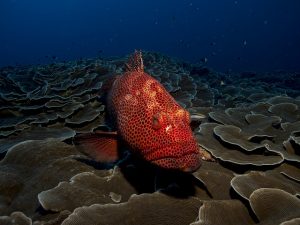
Numerous high street brands such as Neutrogena, Clearasil and Olay still use the beads and are yet to provide comment on what they plan to do.
This year Australia became the latest country to make its move in the great microbead debate. The US news saw President Barack Obama sign into law the Microbead-Free Waters Act of 2015, back in December, prohibiting the manufacture of rinse-off cosmetics containing the beads.
The act will phase out manufacture by July 1, 2017 with sales stopped by July 2018.
Natalie Bennet, leader of the Green Party, believes its time for the UK to follow Australia and the US.
Environmental secretary Andrea Leadsom has announced plans for a ban on the manufacture and sale of cosmetics containing microbeads, which could come into force as soon as 2017.
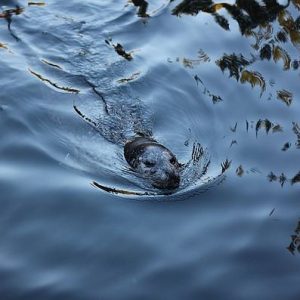
The UK Government previously proposed a voluntary phase-out, working with manufacturers to eventually eliminate the tiny plastic beads from cosmetic products. However, MPs from the Environmental Audit Committee have raised new concerns, over how effective a ban would actually be, given the other sources of microplastics that enter rivers and seas and can harm wildlife.
The sentiment was echoed by the Cosmetics, Toiletries and Perfumery Association (CTPA), which said in a statement, “The quantities [of plastic litter in seas] from other, non-cosmetic, sources dwarf the amount of microbeads we once used. We look to Government to address plastics pollution on a wider basis.”
The Government will launch an investigation later this year to assess the best course of action. However, even if the elimination of microbeads is just a drop in the ocean compared to all other non cosmetic sources of plastic, at least it makes a change for the better, toward a healthier cleaner ocean.
The EU gave the UK the green light to ban all products containing microbeads, but it might take a while for this action to be in full effect.
Meanwhile, stock your bathroom shelves with bead-free beauties.
Microbead-free exfoliants that will not kill marine wildlife:
Dermalogica
Aveda
Lycon
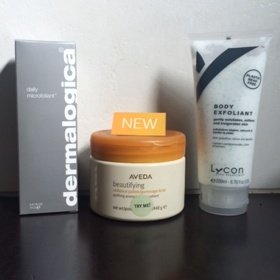
All stocked for sale and use in treatments right here at Shine.
No dolphins being harmed here!
Dana Vronska
October Beauty Promotion
Book the Dermalogica Bio-Surface Peel Facial and receive an after care kit for free (normally £32)



